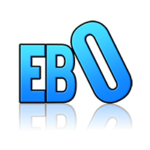By Viv Hailwood, Brainchild Developmental Program Ltd
Are you a teacher trying to manage multiple interventions for a wide range of issues that affect the children in your classroom? Or a parent trying to understand and manage your child’s challenges at home?
Disrupted neurodevelopment is most often the root cause of these challenges.
This is all about brain development, beginning in early pregnancy. The foetal brain functions automatically, under the influence of primitive infant reflexes. These are vital for the baby’s survival and development before and during the birth, and for a period after birth.
However, if these reflexes persist past the second year of life, they begin to limit the development of brain connections. These connections are required for the child to process, co-ordinate physically, communicate, reason, and function emotionally and socially.
It’s about the whole brain!
There are many influences on reflex persistence that lead to such challenges. Our western medical diagnosis system groups the effects of neurodevelopmental immaturity into formal diagnoses. Disorders such as ADHD, language disorder, autism, auditory processing, and sensory processing are just a few.
These reflexes may persist to a lesser extent in many other children, where they can show as isolated difficulties that don’t necessarily fit into a formal diagnosis. If you sometimes think that a child is behaving in an immature manner, it may now be easier to understand why. They cannot help it … it’s automatic!
The good news is there is an intervention that can work on these underlying problems to give the child’s neurodevelopment a second chance. It can provide a firm foundation for the child’s future life and learning.
Introducing EBO
The Brainchild Developmental Program has successfully helped transform young lives in this way for more than two decades. Based on this success with families, schools and groups, we have now developed an exciting and unique new initiative called:
 Enhancing Brain Organisation.
Enhancing Brain Organisation.
This includes two new online neurodevelopmental programs: EBO for Schools and EBO@Home, each designed for the specific setting.
EBO for Schools is a neurodevelopmental program for classes or groups of young people in an educational setting. Initially designed for primary age groups, it has been successfully used in Y7 as well. Training is included for staff, with clear instructions and demonstrations.
EBO@Home is a therapeutic program designed for the parent/carer and child to enjoy and benefit from together. Built-in guidance makes it easy to use.
Both are physically active programs that lead each child through specific sets of physical activities that work on releasing them from the persisting reflexes. Animated video and game-style presentations inspire and engage pupils and teaching staff in the school setting and the child and parent(s) in the home environment.
Learning needs to be fun!
Who can EBO help?
Initially developed to help young people with autism, EBO also helps children with a range of other developmental diagnoses. Because it works at a profound level, it also helps those with no diagnosis who struggle to sustain attention, process information efficiently, co-ordinate, communicate, control reactive responses, and feel confident – and more.
EBO positively influences their reading, writing, sport, personal relationships and social lives. It also lowers anxiety and makes them smile!
EBO seems like play … but with a serious purpose.
Our goal is to enable children to moderate or lose behaviours and learning challenges that cause distress in their lives, so releasing them to thrive.
How is EBO unique?
Not only is it a full neurodevelopmental program, it’s like a video game that’s come to life.
Children love it!
How does EBO work?
EBO Enhances Brain Organisation through physical and sensory activities and games, helping to release children from their neurodevelopmental challenges. The program enables their brains to mature. Life and learning become easier.
The programs work on the integration of 12 key primitive reflexes that can persist from babyhood. Alongside balance, co-ordination and sensory activities, this results in improved maturation and brain function efficiency.
It’s lots of fun, so learning is effective.
Note: To have a single persisting reflex is tiring, and most of the young people that BrainChild has helped arrive with 8-12 key primitive reflexes still active. Truly EXHAUSTING!
Teachers and schools:
Visit our website to read about outcomes and free screening for your pupils.
Parents and carers:
Find out about more individual outcomes and the outcomes of autism groups.
Calling virtual schools!
It’s known that the Primal Period influences neurodevelopment the most. This is the time spent by the baby, in utero, during the birth process and throughout the first year of life. Their experiences during this period can have a huge impact on reflex integration and the child’s future.
This shapes who they are and can potentially create lifelong difficulties.
The EBO programs are particularly relevant for looked-after and adopted children, who may have had a difficult start in life.
Please get in contact
Get in touch via our website or call us on Tel:03337729585 / 07446670707 to book a phone/video call.
We will be happy to hear how we can help you set up your EBO for schools program or begin to help your child at home.
#autism #ADHD #neurodevelopment #animated programs #Brainchild Developmental Program #EBOfor Schools #EBO@Home
















